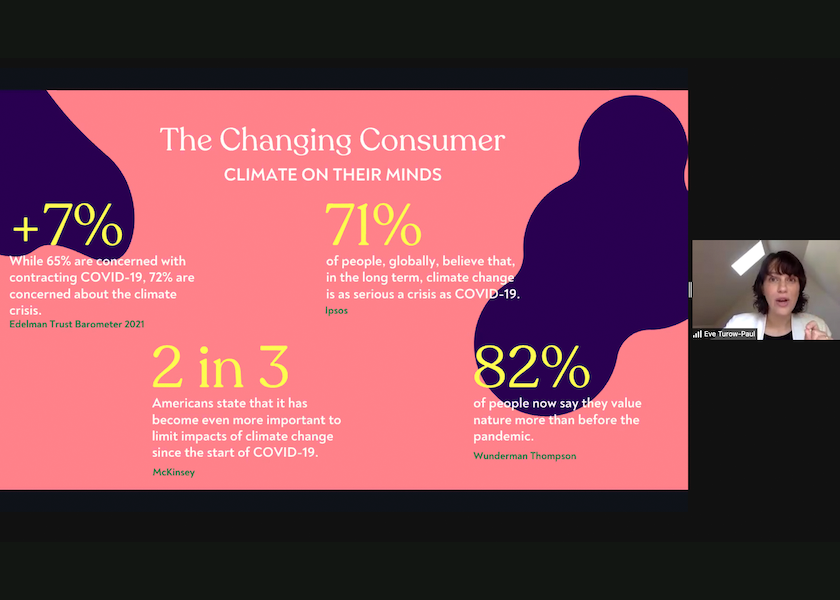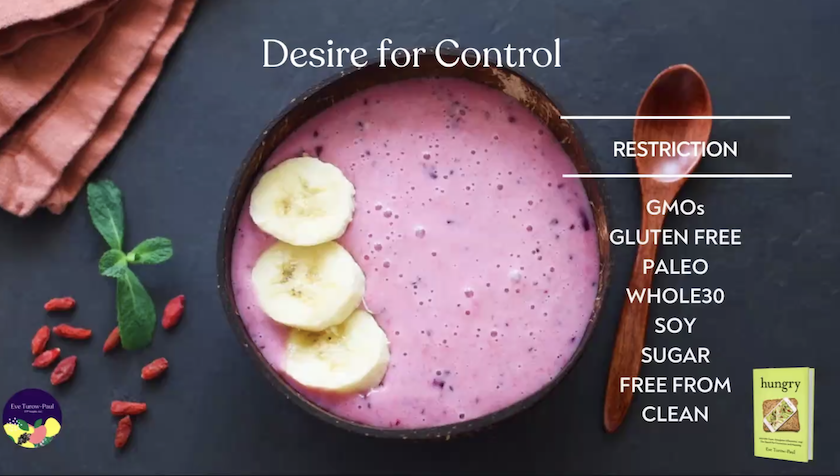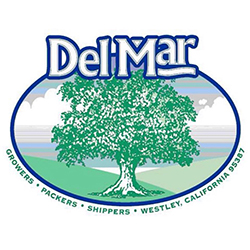Our youngest generations are our most anxious, lonely, tech-savvy consumers who care deeply about food.
And it's all connected.
So said Eve Turow-Paul, author and executive director and founder of Food for Climate League, at the Sept. 15 education session of The Packer's virtual Sustainable Produce Summit.
Her latest book is “Hungry: Avocado Toast, Instagram Influencers, and Our Search for Connection and Meaning.”
In her book, Turow-Paul explains the “why” behind the biggest food and lifestyle trends, helping companies and organizations create products and programs that meet people's needs and utilize food culture as an avenue for mental, physical and environmental health.
According to her Hungry study of 1,100 Americans in partnership with Datassential, 84% of Gen Z and 86% of millennials are passionate about food. Also, almost 60% of Gen Z and millennials agree or slightly agree that in general, their anxiety level is high, while Gen X was at about 55% and baby boomers were at about 35% in agreement.
The Centers for Disease Control and Prevention cited that 41.5% of adults reported symptoms of an anxiety or depressive disorder in 2020. And 25.5% of respondents 18-24 years old said they'd seriously considered suicide in the past 30 days, according to the CDC study.
“With a general public stressed out, overwhelmed, anxious and depressed, their priorities when they purchase fresh produce will still be price, convenience, familiarity and flavor first and foremost.

“That doesn't mean they don't care about our climate. They do,” Turow-Paul said to marketers. “Show how what you are offering helps people meet those needs.”
After their physical needs are met, consumers — of all ages — have a hierarchy of needs, starting with the need for control and safety, then love and belonging, then purpose and meaning, according to 1940s psychologist Abraham Maslow.
With the world seemingly so unmanageable, people are looking for control, and they're turning to food to fulfill those unmet needs, she said.
“As marketers, you cannot ignore the fact that people are in crisis,” Turow-Paul said. As a way to control their produce, “people want to know more about who is growing their foods, where they're growing it, how they're growing it.”
This desire for control can lead to restrictive eating trends and diets, which can lead to disordered eating, especially in younger generations.

Other recent drives to control when it comes to food include: hoarding, victory/windowsill gardens, comfort foods, local foods, protests, immune-boosting and food sovereignty, she said.
According to the Southeast Produce Council, 53% of adults bought farm-direct produce in 2021, with the highest participation among Gen Z (47%) and millennials (46%) compared to boomers (10%).
Also, half of shoppers want to see nutrition information and 40% like information on origin, taste/texture, growing practices and preparation/storage tips, according to the SEPC study.
Consumers are satisfying their desire for belonging — that next level of Maslow's human needs — by using food to create their identity. They're identifying with others through veganism; paleo/keto lifestyles; influencer culture; intermittent fasting; diet tribes; and CrossFit.
With younger people glued to their phones and less adept at deep, in-person relationships, they're looking for a sense of community through food.
They're using farmers markets, TikTok, restaurant culture, cooking together, video calls, regional food pride and heritage/ancestry foods as a way to cultivate their feeling of community.
And 83% of respondents like to see new varieties of produce in store, according to SEPC's 2021 study.
Finally, consumers are seeking purpose and meaning in fresh produce. Meaning can be found through skill building, in nature, and considering the greater good, Turow-Paul said.
This need shows up in food trends in tangible ways, such as the DIY movement, sourdough bread, gardening and coloring books. People are finding their purpose through farming, foraging, biophilic design, camping, plant parenthood, hiking and animal cafes.
In her global research travels, Turow-Paul has encountered even sheep and meerkat cafes.
People also want to vote for social justice and sustainability with their produce dollar.
Food for Climate League and Datassential's 2020 study found that 54% of Americans say they'd be “very interested” in purchasing and eating foods that help their local community and farmland become more resilient to climate change.
Produce marketers have an opportunity to share with consumers in clear, numbers-specific ways how they're meeting these needs. They can tell their story with simple packaging labels and meet consumers especially where they are, like on social media.
“Food is home. Food is comfort, and we can really use food to create that sense of purpose and meaning in our lives,” Turow-Paul said.



















